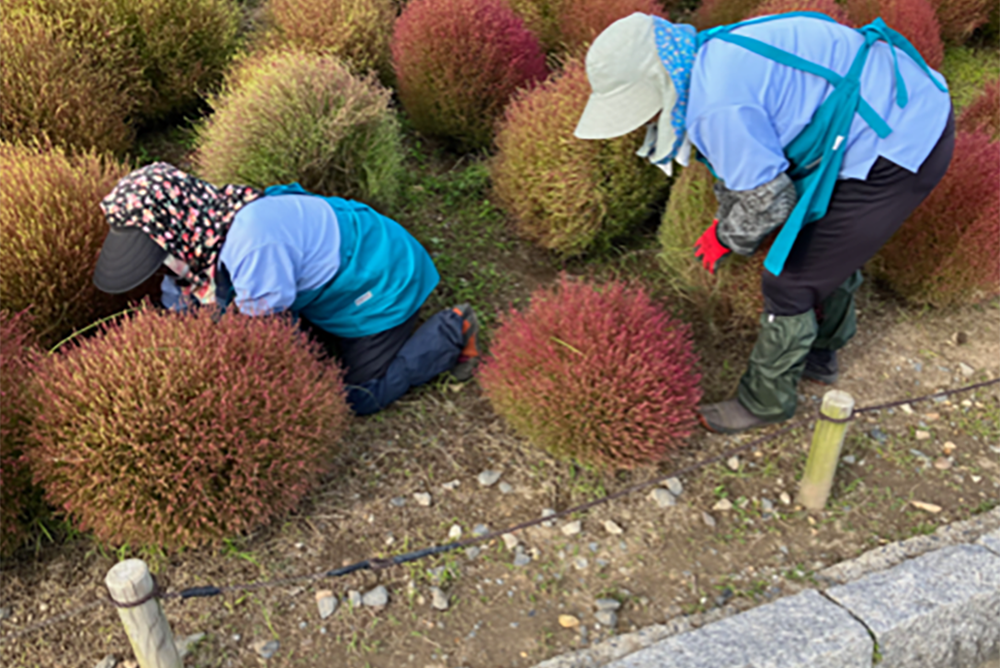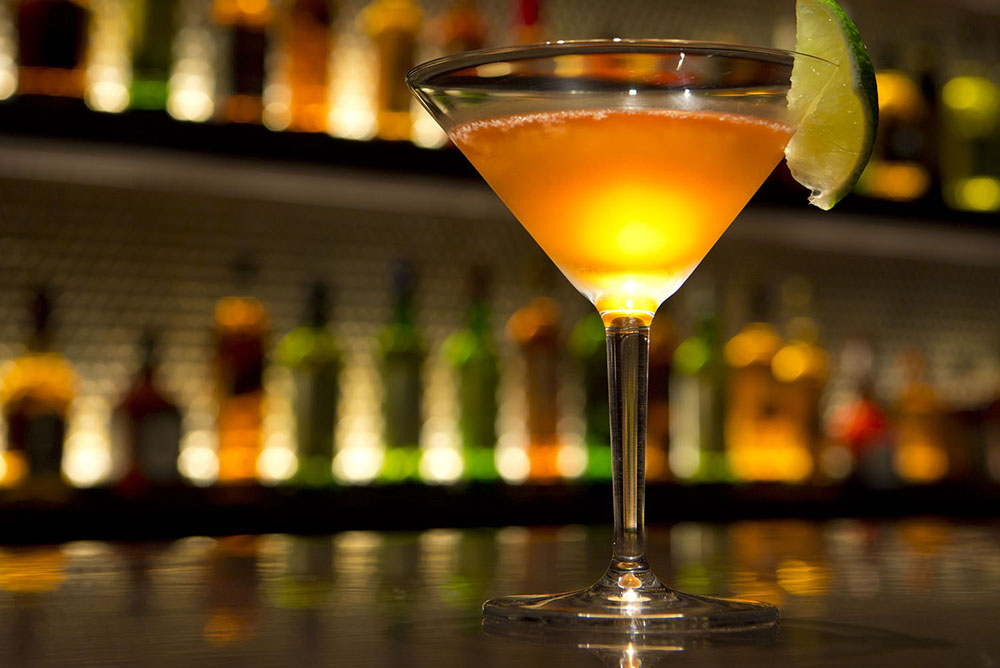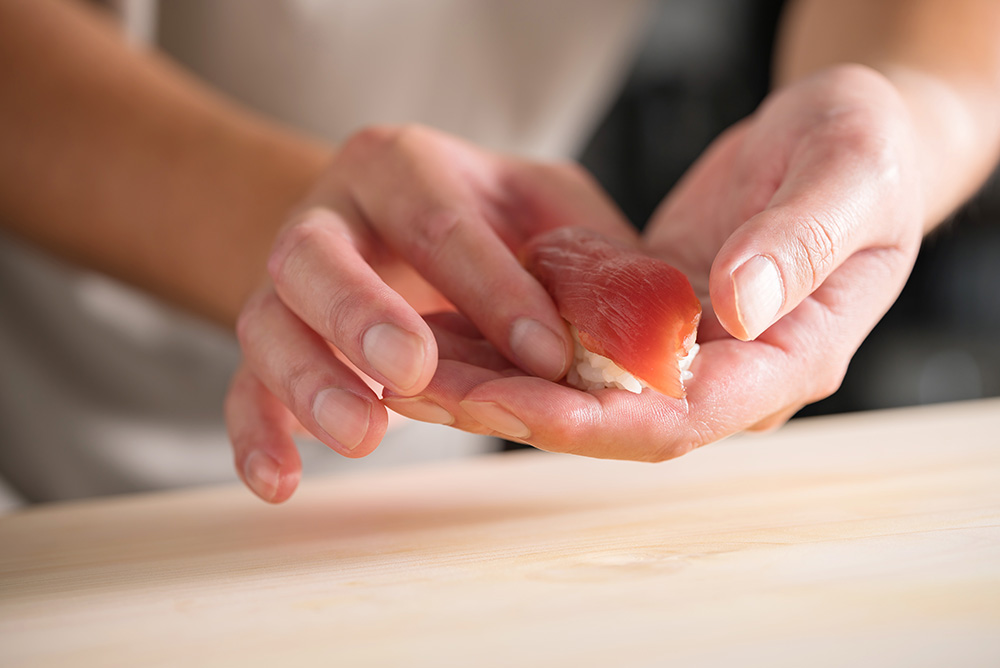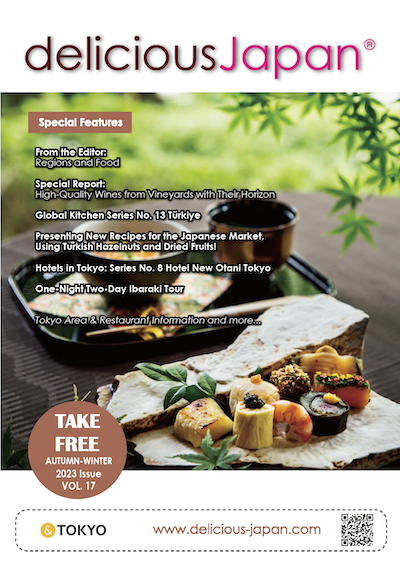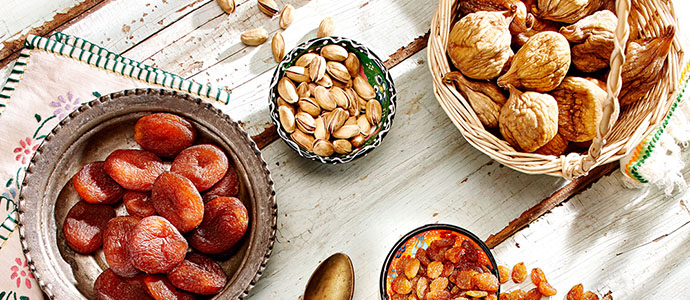
Global Kitchen Series No. 13 - Türkiye
Celebrating the 100th Anniversary of the Establishment of Diplomatic Relations between Japan and Türkiye in 2024

Mukaddes Nur YILMAZ
Chief Commercial Counselor
Embassy of the Republic of Türkiye in Japan
You were assigned to Japan on August 22, 2022. Did you get used to living in Japan, where the language and business customs differ from Türkiye?
Türkiye is a bridge between Asia and Europe, not only geographically but also culturally and socially. In addition to its own culture, Türkiye is the heir to the great Anatolian civilizations it has hosted throughout history and the cultural diversity inherited from the Ottoman Empire, which ruled the Mediterranean basin for more than six centuries. In this respect, Türkiye is a mixture of West and East, old and new, traditional and modern. Perhaps as a result of this diversity, we do not find it difficult to adapt to different cultures and find something of our own. Even Japan's complex rules of behavior remind me of something from Türkiye's rich culture. For example, you bow instead of shaking hands, but these remind me something from our culture we bow to the elderly and then kiss their hand.
In my work life in Japan, I don't have any problems due to the language barrier. I have specialists in my office who are fluent in both languages and are able to meet our translation needs, which is a great relief for me as well as for our Japanese visitors. I would also like to thank the Tokyo University of Foreign Studies for providing Turkish language training. However, I must admit that I have felt the impact of the language barrier in my personal life.
On the other hand, Japanese business culture is very different from ours. Turkish people are typical Mediterranean people, we are a bit emotional and impetuous. Compared to Turkish ones meticulousness are very common in Japanese business culture. But Turkish business people also find it instructive in some ways. The most common thing we hear from Turkish companies doing business with Japan is "We had a hard time in the beginning, but we learned a lot. Now we trust them and they trust us". We Turks are good at adapting quickly as well as being loyal.
What was the biggest culture shock for you in Japan?
Japanese culture is very close to ours. We do not enter the house with shoes on and also like to take a bath while sitting down either. More interestingly like your tatami rooms, we have traditional rooms in our houses, decorated with Turkish rugs and carpets, where we love to spend time. Our traditional clothes are similar in a way too. Treating elders and other family members are quite the same. I'm more surprised by the similarities than the cultural differences.
I think the most important culture shock I experienced in Japan was the abundance of restaurants at every step and the fact that ready-made meal sets called bento were sold in the markets. I see that eating out or buying ready- meals is very common. As you know, Turkish cuisine is considered one of the three great cuisines of the world. Our meat and chicken kebabs are very popular in Europe and the USA, they are prepared fresh in a short time. However, I am surprised that they have not yet gained popularity in Japan, where eating out is so common. I wonder when the Japanese will discover our kebaps and meat pita? There are Turkish restaurants serving Turkish kebabs in Tokyo, I recommend you to stop by and try it.
This year marks the 100th anniversary of the founding of the Republic of Türkiye, and 2024 will mark the 100th anniversary of the establishment of diplomatic relations between Japan and Türkiye. What is your most significant role as First Commercial Counselor?
In my role as the Chief Commercial Counselor, my main objective is to improve and strengthen the economic and commercial ties between Türkiye and Japan, especially during such a significant period of history as we celebrate the 100th anniversary of the Republic of Türkiye and look forward to the 100th anniversary of diplomatic relations with Japan in 2024.
Our aim is to increase Türkiye's exports and build a stronger, balanced, and sustainable trade with Japan. Currently, the trade balance is against Türkiye. The total trade volume is close to 5 billion dollars, extremely below its potential. Türkiye has a total trade volume of 31 billion dollars with the USA and 45 billion dollars with Germany, additionally, these are more balanced comparing to Japan's. Why shouldn't we have a higher and balanced trade relationship? I believe that we can achieve this within a very short period of time. Türkiye produces a wide variety of industrial and agricultural products in a good quality and is also a good investment destination. With this understanding, my office is ready to serve Japanese companies as well.
In addition, we are committed to promoting bilateral trade and diversifying export categories. This involves identifying growth opportunities and eliminating trade barriers that may hinder the exchange of goods and services between our two countries. We are actively exploring new export categories and products for the Japanese market, including textiles, apparel, food, and manufacturing sectors, in order to diversify our exports and meet the evolving demands of Japanese consumers.

This year, as the coronavirus has subsided, many trade missions have come to Japan from Türkiye, and buyer mission programs have also been implemented from Japan to Türkiye. Although it is only October, how do you evaluate Türkiye-Japan trade relations and the balance of mutual trade in 2023?
In Japan, strict border measures were in place until October 2022, significantly impacting the ability of Turkish businesspeople to visit Japan. After these restrictions were lifted in 2023, there was a noticeable increase in trade activities between the two countries.
We've seen more than 200 companies from various Turkish sectors, including machinery, medical devices, automotive, textiles, and food, visit Japan within the scope of 11 delegations. On the flip side, 13 Japanese companies have visited Türkiye as part of procurement delegations, indicating mutual interest in expanding trade relations.
When we look at the trade balance, Turkish imports from Japan, particularly for investment goods, were around USD 3.2 billion in 2022. In contrast, Turkish exports to Japan crossed the $1 billion mark for the first time in 2022, reaching $1.026 billion. However, the recent data for the first six months of 2023 show that Turkish exports to Japan stood at $596 million, while imports from Japan amounted to $1.92 billion.
This data underscores a significant trade imbalance in favor of Japan, which has been consistent over time, and largely influenced by infrastructure projects undertaken by Japanese companies in Türkiye. To achieve a sustainable and balanced trade relationship, it's essential to address this imbalance.
Next year will finally mark the 100th anniversary of establishing diplomatic relations between Japan and Türkiye. Japan's self-sufficiency rate is low at 38% on a calorie basis, so Japan has to rely on overseas sources for more than 60%. Please tell us about your plans to promote exports to Japan, including developing new areas of trade and cooperation in the food sector.
The approaching 100th anniversary of diplomatic relations between Japan and Türkiye is a momentous occasion, and we are committed to strengthening our economic ties as we celebrate this significant milestone. Japan's reliance on overseas sources for more than 60% of its food supply presents a unique opportunity for Turkish exports, particularly in the food sector.
We are focusing on developing new areas of trade and cooperation in the food sector to cater to Japan's growing demand for diverse food products. These efforts include expanding our presence in food exhibitions and trade fairs in Japan, increasing the participation of Turkish companies, and organizing buyer missions to facilitate face-to-face interactions between Turkish producers and Japanese importers.
Additionally, we aim to introduce Japanese consumers and businesses to a wider range of Turkish food products beyond the ones they are already familiar with, such as tuna and salmon trout. Türkiye offers a wealth of agricultural and food products, including olive oil, pasta, canned tomatoes, raisins, dried figs, dried apricots, hazelnuts, poultry meat, frozen vegetables, chocolates, candies, fruit juices, and fresh citrus. We believe these products have the potential to meet Japan's dietary needs and preferences.
Our goal is to establish a more balanced and sustainable trade relationship, where the economic cooperation between Turkish and Japanese businesses flourishes, contributing to the overall food security and diversity in Japan.
Lastly, what is your favorite Japanese food, Yilmaz-san? Also, have you ever tried sake? If so, please let me know your impressions.
My preferred Japanese dish would have to be yakitori. The appeal lies in its grilled, skewered chicken preparation, and it oddly reminds me of the succulent Grilled Turkish-style chicken wings back in Türkiye. The similarity in the grilling method and the flavors brings a sense of familiarity and comfort. It's noteworthy that Turkish poultry is readily available in the Japanese market, adding a distinctive taste to the yakitori that makes it even more delectable.
As for sake, it's an intriguing and unique beverage. It is known that sake pairs well with various Japanese dishes, including yakitori, enhancing the overall dining experience. Exploring the culinary landscape in Japan has been a delightful journey. I know that the interest in sake is increasing in Türkiye as well. It is also great to hear that those who have tried Turkish wines like it. I hope Turkish wine becomes a popular drink in Japan soon.

